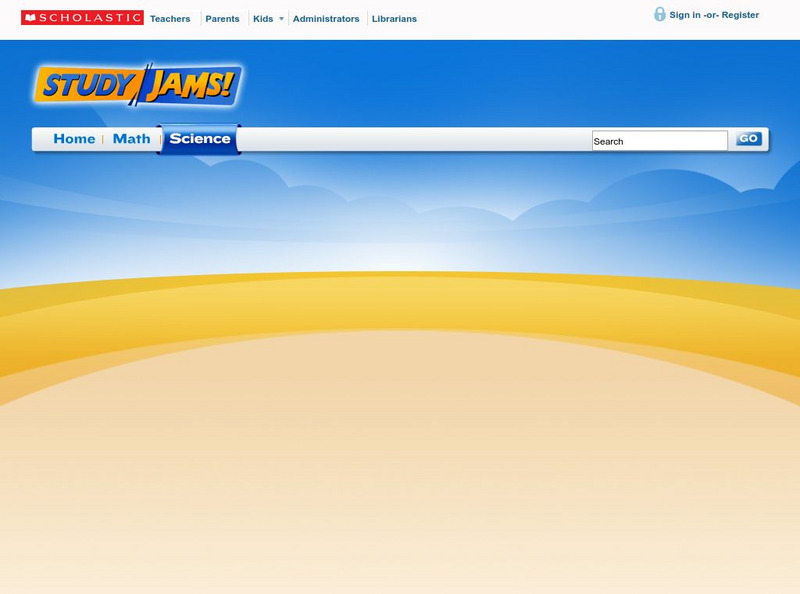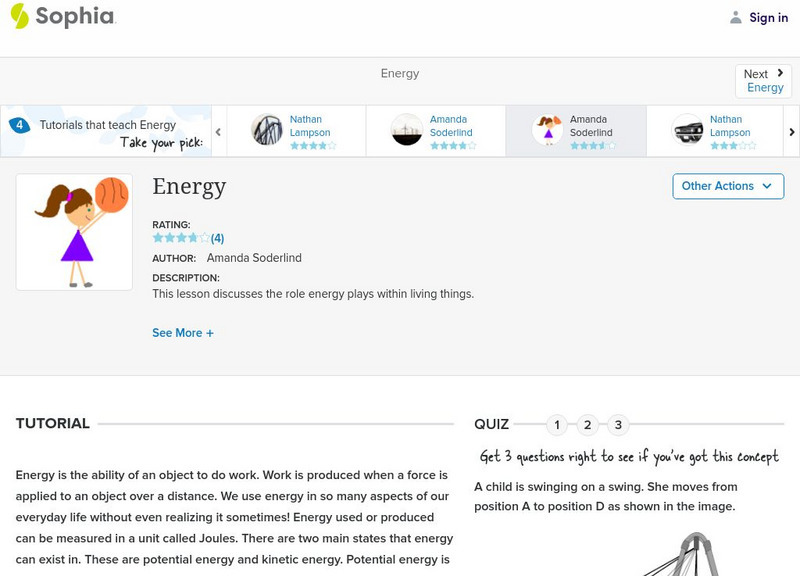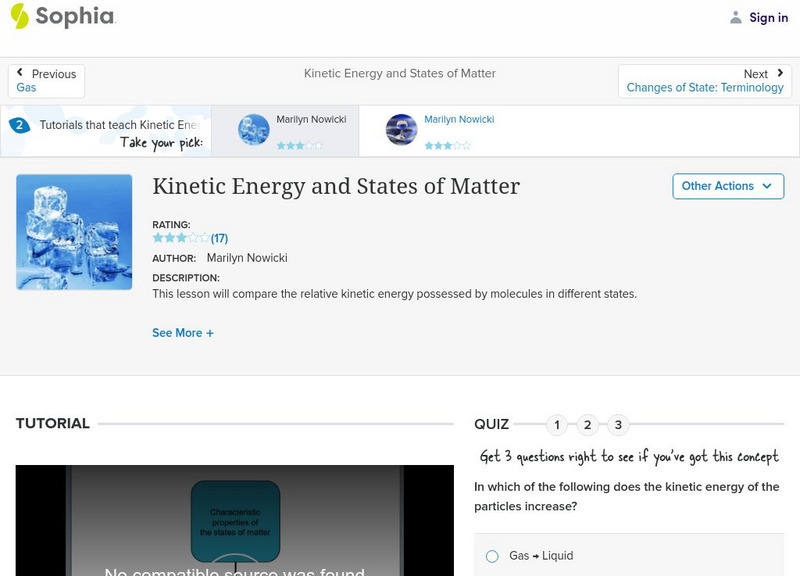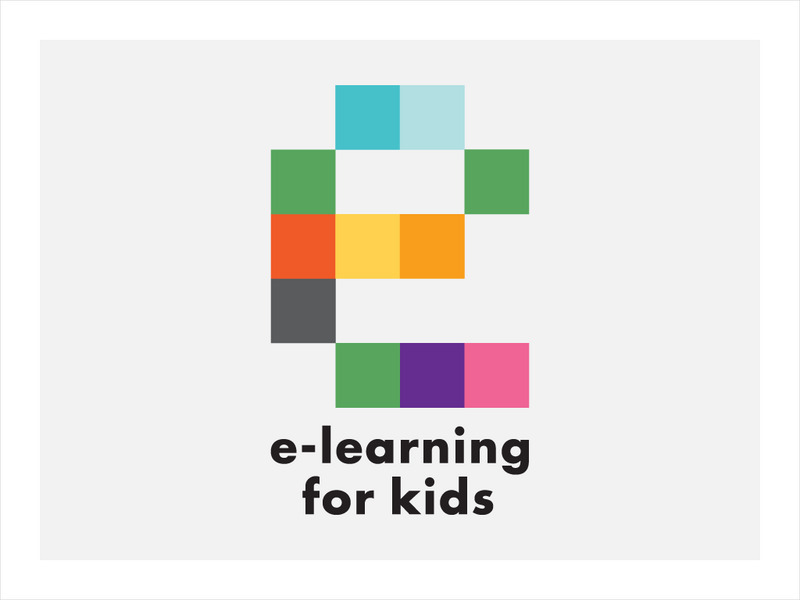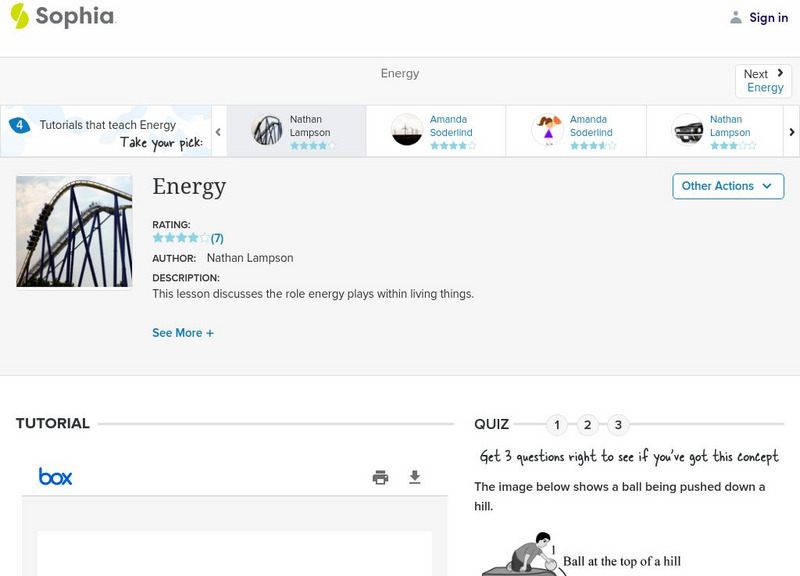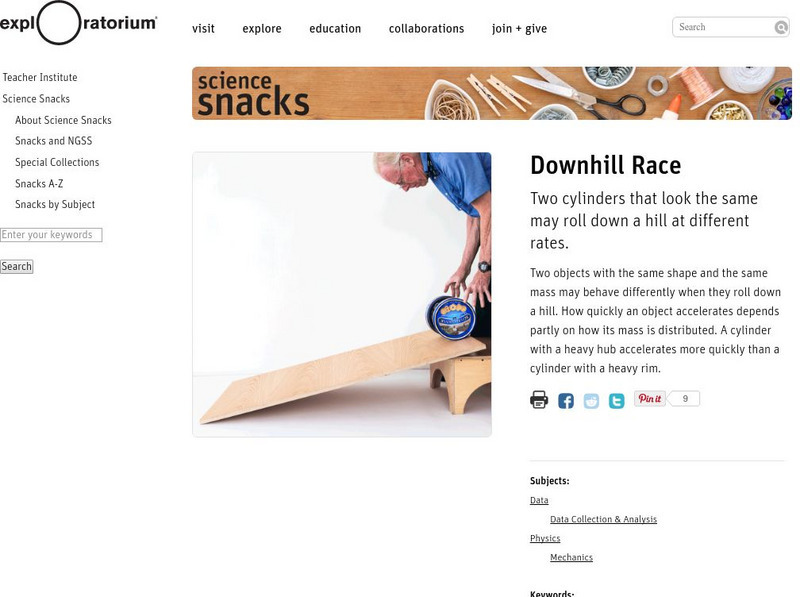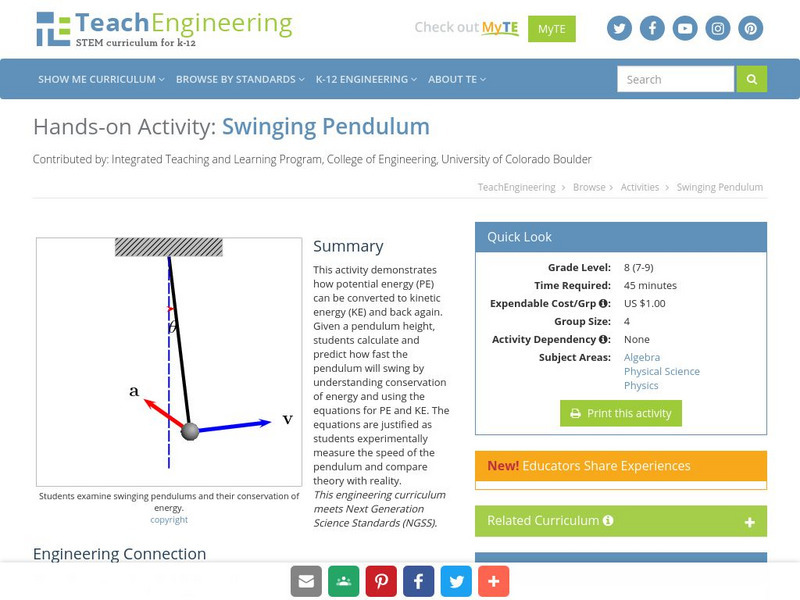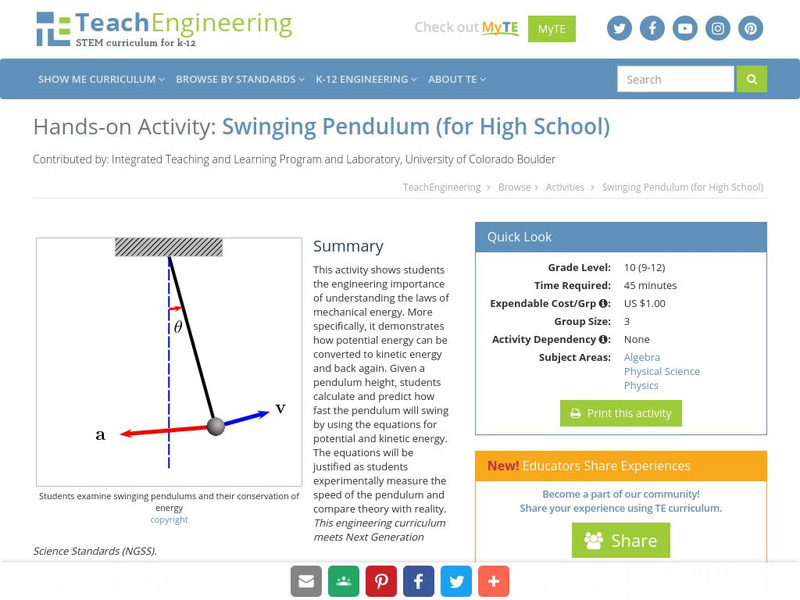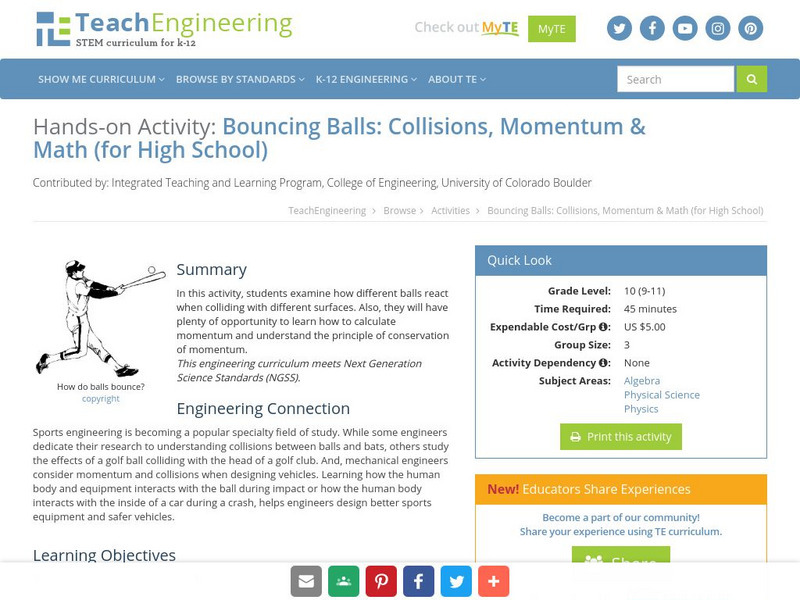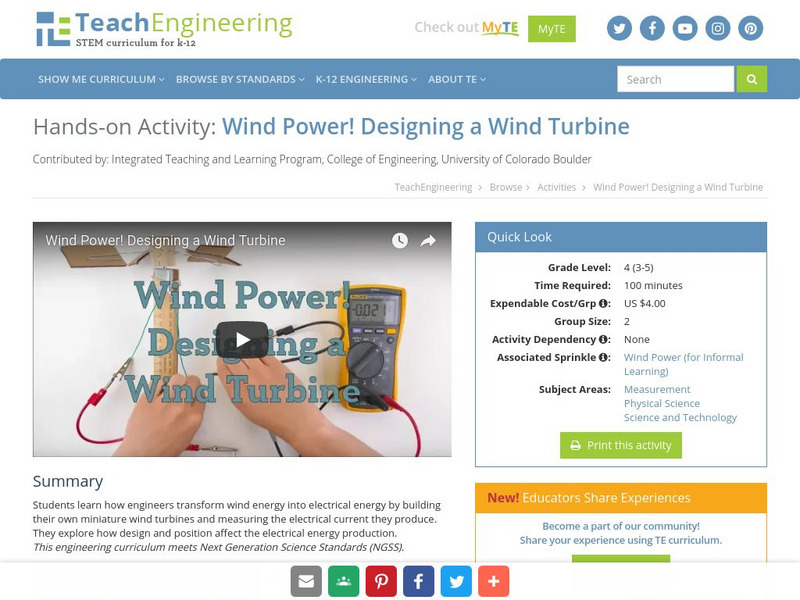Other
Fearof Physics: Videos
Looking for some more explanantion on a topic covered in physics class? This site contains videos that explore some physics concepts. Videos are broken down by topics. Some videos also give examples on how to solve problems.
Other
Wikibooks: Physics Study Guide
A handy resource that gives an overview of equations and definitions pertinent to an introductory, college-level physics course, with two of its three sections focusing on motion-related topics and principles.
Scholastic
Scholastic: Study Jams! Science: Matter: Energy & Matter
A video and a short quiz on the different forms of energy, and how energy moves or changes matter.
Center of Science and Industry
Cosi Columbus: Rubberband Rollback
A simple experiment that explores potential and kinetic energy involving the use of a can, a rubber band, some washers, and other everyday materials. Discover why the can rolls forward, then back.
Center of Science and Industry
Cosi Columbus: Catapult
Science experiment that demonstrates how energy is transferred. Includes full list of materials, procedures, and scientific explanation of how the tension in the catapult causes an object to travel far.
Concord Consortium
Concord Consortium: Molecular Workbench: Experiment on Material Strength
Adjust the strength of interatomic interactions in this virtual bullet experiment. Observe how the adjustments in strength affect the material in the experiment.
University of Colorado
University of Colorado: Ph Et Interactive Simulations: Masses and Springs
Use this interactive, animated lab to explore conservation of mechanical energy.
Sophia Learning
Sophia: Energy: Lesson 5
This lesson discusses the role energy plays within living things. It is 5 of 7 in the series titled "Energy."
Sophia Learning
Sophia: Kinetic Energy and States of Matter: Lesson 1
This lesson will compare the relative kinetic energy possessed by molecules in different states. It is 1 of 2 in the series titled "Kinetic Energy and States of Matter."
E-learning for Kids
E Learning for Kids: Science: Antilles: What Are the Different Forms of Energy?
Students will learn about the different types and sources of energy, including heat and light, electrical, potential, and kinetic energy.
E-learning for Kids
E Learning for Kids: Science: Pirates: What Is Energy Conversion?
This lesson covers the different types of energy, the definitions of kinetic and potential energy, how energy can be converted into different forms, and the law of conservation of energy.
Bozeman Science
Bozeman Science: Work and Energy
In the following video Paul Andersen explains how the mechanical energy added or removed from a system results from work. For work to occur a force must act parallel to the displacement of the system. Since work and energy are equivalent...
Sophia Learning
Sophia: Energy: Lesson 7
This lesson discusses the role energy plays within living things. It is 7 of 7 in the series titled "Energy."
Sophia Learning
Sophia: Transfer of Energy: Lesson 1
This lesson explains the difference between the types of energy, including Potential Energy and Kinetic Energy. It is 1 of 2 in the series titled "Transfer of Energy."
Exploratorium
Exploratorium: Science Snacks: Downhill Race
An activity that explores how two cylinders that are identical in shape and mass may travel down a hill differently due to how their mass is distributed. Learn how the distribution of mass in an object can affect its translational...
Other
How to smile.org: Build a Wind Turbine
A step-by-step guide to build a wind turbine. Using their wind turbine, students test how much energy is created by using a variety of wind blades and wind speeds.
Museum of Science
Museum of Science and Industry Chicago: Online Science: Drop Eggs Into Cups
Step-by-step illustrated instructions showing how to drop four eggs into four cups without touching them. Demonstrates the concept of inertia according to Newton's first law of motion.
Museum of Science
Museum of Science and Industry: Online Science: Activities: Make a Comeback Can
Step-by-step instructions, with photos, of how to make a metal can come back when it is sent rolling away. The can uses both kinetic and potential energy to roll away and back.
TeachEngineering
Teach Engineering: Swinging Pendulum
This activity demonstrates how potential energy (PE) can be converted to kinetic energy (KE) and back again. Given a pendulum height, students calculate and predict how fast the pendulum will swing by understanding conservation of energy...
TeachEngineering
Teach Engineering: Swinging Pendulum
This activity shows students the engineering importance of understanding the laws of mechanical energy. More specifically, it demonstrates how potential energy can be converted to kinetic energy and back again. Given a pendulum height,...
TeachEngineering
Teach Engineering: Bouncing Balls (For High School)
In this activity, students examine how different balls react when colliding with different surfaces. Also, they will have plenty of opportunity to learn how to calculate momentum and understand the principle of conservation of momentum.
TeachEngineering
Teach Engineering: Ramp and Review
In this hands-on activity - rolling a ball down an incline and having it collide into a cup - the concepts of mechanical energy, work and power, momentum, and friction are all demonstrated. During the activity, students take measurements...
TeachEngineering
Teach Engineering: Ramp and Review (For High School)
In this hands-on activity - rolling a ball down an incline and having it collide into a cup - the concepts of mechanical energy, work and power, momentum, and friction are all demonstrated. During the activity, students take measurements...
TeachEngineering
Teach Engineering: Wind Power!
Students learn how engineers transform wind energy into electrical energy by building their own miniature wind turbines and measuring the electrical current it produces. They explore how design and position affect the electrical energy...




